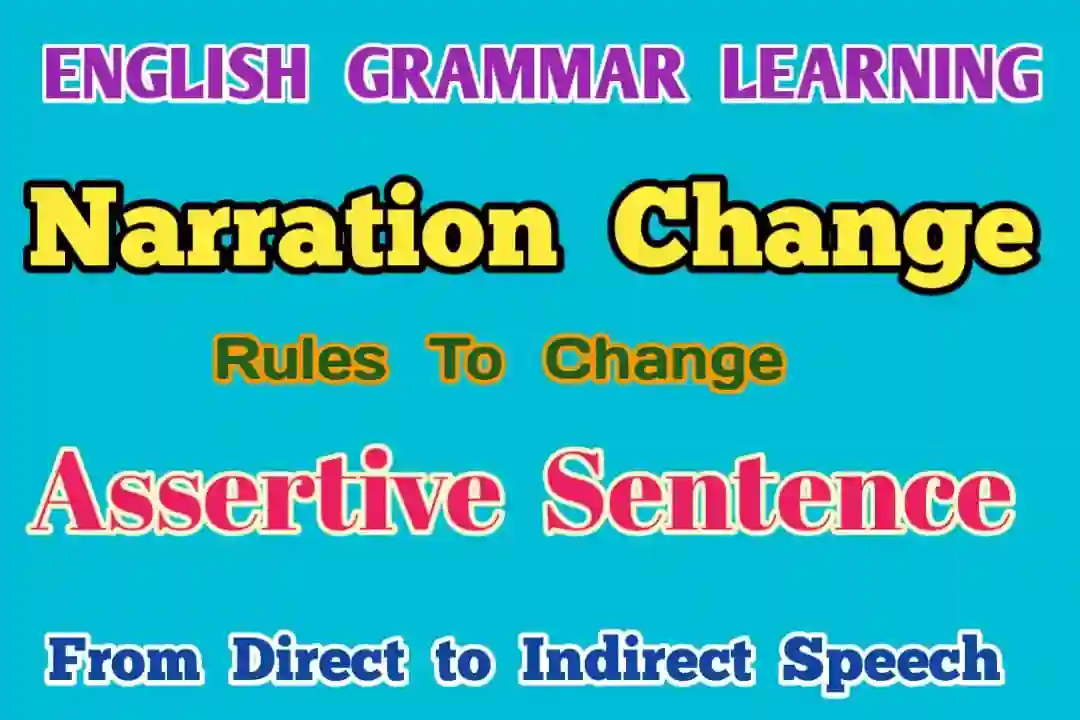Understand the art of expressing strong emotions with Direct and Indirect Speech of Exclamatory sentences. Learn how to use exclamation marks and the right grammar to convey surprise, emphasis, and strong feelings.
Discover the difference between Direct and Indirect Speech of exclamatory sentences, and see how they can be reported in different ways. Enhance your language skills and improve your communication with this comprehensive guide on Direct and Indirect Speech of Exclamatory sentences.
Exclamatory Sentences in English
An exclamatory sentence is a type of sentence that expresses strong emotion, surprise, or emphasis. It often ends with an exclamation mark (!). These sentences can express a wide range of emotions, including joy, amazement, anger, frustration, or sorrow.
They serve to add emphasis or express strong feelings and are often used to make a statement stand out in a conversation or text. For examples,
- “Wow, what a beautiful day!”,
- “What a terrible mistake!”,
- “How amazing!”.
Identify Exclamatory Sentences for Direct and Indirect Speech
An Exclamatory Sentence expresses some emotion. The emotion is conveyed through an interjection or an interjectional phrase or some idiomatic touches.
In this type of sentence, there is an exclamation mark (!). This sentence also expresses some emotion or feeling.
Example:
- Direct: He said, “Alas! I am undone.”
- Indirect: He cried out in sorrow that he was undone.
Let’s now consider Direct and Indirect Speech to understand the Rules of Exclamatory Sentences from Direct Narration to Indirect Narration.
More Direct & Indirect Speech Resources:
Direct Speech to Indirect Speech Rules of Exclamatory Sentences
Rule 1:
First, try to explore which kind of sentence the reported speech is under Direct Narration.

Rule 2:
In Indirect Narration, the Interjectional Words or Phrases are omitted, and the emotion is expressed through other words (exclaim, cry out, pray, wish,). But new words and phrases have often to be introduced to express the full meanings. In General, the Reporting Verbs in Indirect Narration can be like – exclaim (with/in) joy /sorrow, etc.

Rule 3:
In Indirect Narration, the conjunction, “that” is used before the Reported Speech.

Rule 4:
The Note of Exclamation ( ! ) is replaced by a Full Stop ( . ) in Indirect Narration.

Rule 5:
The next rule is about the Changes in Persons in indirect narration. It is under the General Rule Category. Study and Explore the rules.
Rule 6:
Changes in Reporting Verb in Indirect Narration and the Verb of the reported speech in indirect narration also have been discussed in the General Rules section on the previous page. Should be carefully studied.
Examples of Direct and Indirect Speech of Exclamatory Sentences
Note carefully the Change of Exclamatory Sentences from Direct Speech to Indirect Speech.
Direct: He said, “Alas! I am undone !”
Indirect: He cried out in sorrow that he was undone.
Direct: He said, “What a fool I am !”.
Indirect: He exclaimed with grief that he was a great fool.
Direct: He said, “Goodbye, my friends.”
Indirect: He bade his friends goodbye. (Or, He bade goodbye to his friends).
Direct: “Bless his kind heart !” they cried.
Indirect: They blessed him for his kind heart.
Direct: “Bravo ! well done !” they cried.
Indirect: They applauded him, for (or saying that) he had done well.
Direct: “So help me Heaven !” he cried, “I will never do so again.”
Indirect: He prayed to Heaven to help him in his resolve not to do so again.
Direct: He said, “By Jove! What good news !”
Indirect: He swore by Jove that it was a piece of very good news.
Direct: The boys said, “Hurrah! We have won the match.”
Indirect: The boys exclaimed in/withjoy that they had won the match.
Some Work Out Examples of Direct and Indirect Speech of Exclamatory Sentences
Direct: He said to me, “Alas! I could not save you.”
Indirect: He exclaimed in grief that he could not save me.
Direct: The boy said, “What a fool I am!”
Indirect: He exclaimed (cried out) that he was a great fool.
Direct: He said, “What a nice bird it is!”
Indirect: He exclaimed in wonder that it was a very nice bird.
Direct: He observed, “How dirty the house is!”
Indirect: He exclaimed that the house was very dirty.
Direct: “Help! Help!” shouted the woman.
Indirect: The woman shouted for help.
Direct: He said, “Goodbye, my friends!”
Indirect: He bade goodbye to his friends. / He bade his friends goodbye.
Direct: The teacher said, “Thank you, my boys!”
Indirect: The teacher thanked the boys.
Direct: He said, “By Jove! What good news.”
Indirect: He swore by Jove that it was a piece of very good news.
Direct: She said to me, “Happy Christmas.”
Indirect: She wished me a Happy Christmas.
Direct: He said to them, “Bravo! you have done well.”
Indirect: He applauded them saying that they had done well.
Important Examples of Exclamatory Sentences
Study the following workout examples of exclamatory sentences from Direct speech to Indirect Speech.
Direct: The old man said to him, “Fie! You are such a coward.”
Indirect: The old man exclaimed that it was shameful that he was such a coward.
Direct: He said, “Poor fellow! How changed you are.”
Indirect: He pitied the man and exclaimed that he was greatly changed.
Direct: “So help me Heaven!” he cried, “I’ll never do so again.”
Indirect: He prayed to Heaven to help him and resolved not to do so again.
Direct: He said, “Who knew that this would happen!”
Indirect: He said that none knew that (that) would happen.
Direct: He said, “Good Gracious! What a huge snake.”
Indirect: He exclaimed with wonder that it was a huge snake.
Direct: “Good Heavens! We have reached the station,” said the boys.
Indirect: The boys exclaimed with delight that they had reached the station.
Direct: He said to me, “How happy you are !”
Indirect: He told me that I was very happy.
Direct: He said, “What a nice thing it is !”
Indirect: He said (or exclaimed with joy) that it was a very nice thing.
Direct: He said, “What was my joy to see the thing !”
Indirect: He said that his joy to see the thing was very great.
Direct: I said, “Who knew that this would happen !”
Indirect: I said that none knew that that would happen.
Direct: He said, “Thank you.”
Indirect: He thanked me.
Direct: He said, “Curse the rain.”
Indirect: He cursed the rain.
Direct: He said, “Good morning.”
Indirect: He greeted me (or, wished me) a good morning.
Direct: He said, “Congratulations !”
Indirect: He congratulated me.
Exercise worksheet Exclamatory Sentence
Turn the following into a Reported Speech of Exclamatory sentence
1. She said, “Alas! my daughter is lost.”
2. The boys said, “Hurrah! our team has won.”
3. “How happy we were there!” they said.
4. Ram said, “What a beautiful bird I’ve seen!”
5. The poor woman said, “Alas! I’m ruined.”
6. “Good night to you all”. said he.
7. She said, “What a fool you’re!”
8. Puspen said, “How happy I am now!”
9. We all said, “May he live long!”
10. He said to me, “May you succeed.”
11. “What a lazy boy you are!” he angrily remarked.
12. She said, “What a pity you did not come.
13. “Bravo! You’ve played well,” the captain said.
14. He said to his friend, “May God save you.”
15. You said, “Alas! I am ruined.”
16. He said to me, “What a forgetful fellow you are!”
17. The old man said, “How soothing the sunshine is!”
18. She said, “What a disgraceful insult!”
19. The boys said, “Hurrah! Our school team has won the trophy.”
20. Rikta said to her friend, “How happy I am to meet you!”
21. The host said, “Thank you, my guest.”
22. The girl said, “How cruel the man is!”
23. The boy said to me, “Fie! you have stolen my book.”
24. He said to me, “Bravo! it is well done.”
25. Mother said, “How dirty the environment is!”
26. They said, “How glorious the death is!”
27. The soldiers said, “Goodbye, my friends!”
28. You said, “Good morning, Mr. Roy!”







